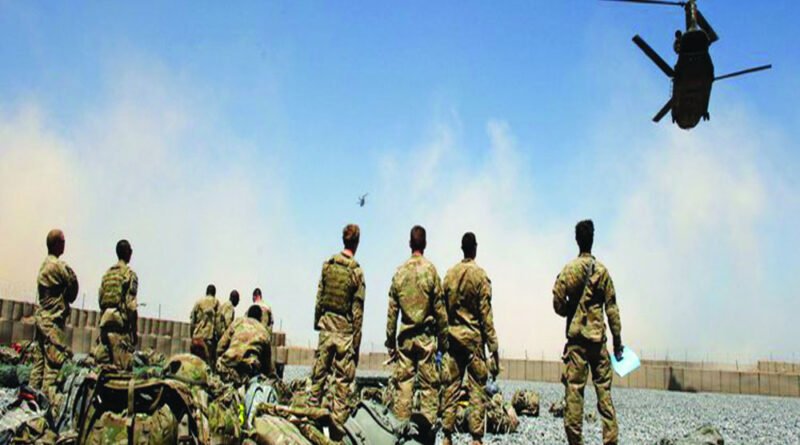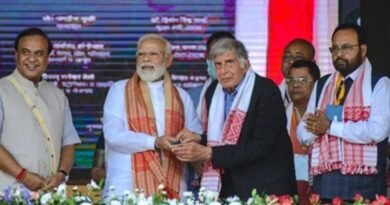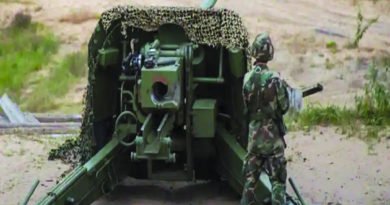India and Af: The Taliban conundrum
New Delhi must consider what it can do to prevent the Taliban from coming to power because that would be to the advantage of Pakistan
With the complete withdrawal of American troops from Afghanistan scheduled to happen by September 11, India needs to seriously ponder the consequences, particularly that of the Taliban coming to rule that country. This, of course, will happen only if they defeat the democratically elected Afghan Government’s forces militarily. The question arises whether they can do so and, if they can, what would that mean for this country.
Militarily, the Afghan National Army, the ground-war arm of the Afghan National Security and Defence Forces (ANSDF), has, despite serious problems of desertions and unwillingness to enlist, become a battle-hardened force capable of confronting the Taliban and other terrorist organisations. Its commando units and special forces have been especially impressive. Further, 80 to 90 per cent of the air support, which has played a critical part in the ANA’s operations against the Taliban, is now provided by the fledgling Afghan Air Force (AAF).
The Taliban have doubtless established their sway over much of countryside and some cities, besides inflicting a number of severe defeats on Government troops. But at least some of the defeats at the beginning of 2020 were due to operational constraints — such as going on the defensive — the Trump administration imposed on them in the interest of its peace negotiations with the Taliban. It had also arm-twisted the Afghan Government into conceding the Taliban’s demand of releasing 5,000 of its fighters from Afghan jails as a pre-condition for talks. Many of these fighters have taken up arms again despite the Taliban’s promise to the contrary.
Simply put, India must consider what it can do to prevent the Taliban from coming to power. The Taliban, fundamentalist Islamists who hate India pathologically, have close ties with terror outfits like the Lashkar-e-Toiba, Jaish-e-Mohammad and Hizbul Mujahideen. Recall its complete support to the hijackers of the IC-814 on December 24, 1999, which was eventually taken to Kandahar. Without that, the hijackers would not have been able to extract the release of Masood Azhar, Mushtaq Ahmed Zargar and Ahmed Omar Saeed Sheikh— before releasing the hijacked aircraft and its passengers. Pakistan’s Directorate-General of Inter-Services Intelligence (ISI), which was also deeply involved, established the Jaish-e-Mohammad in 2000 with Masood Azhar as its chief.
Trying to reach out to the Taliban will be futile. Even if they want to respond to Indian overtures — which is highly unlikely — Pakistan, which controls them, will stop them. Besides its pathological obsession with avenging the rout it suffered at New Delhi’s hands in the 1971 war, Islamabad is loath to permit any Indian influence over Afghanistan because it believes that control over the latter is essential to its securing a “strategic depth” against this country.
The concept of “strategic depth” has become a fixation with Pakistan. Its origin is traceable to Aslam Siddiqi’s book, Pakistan Seeks Security which states that fusion with Iran and Afghanistan could lend depth to Pakistan’s defence against India. A press release published in Pakistan’s Daily Times on July 4, 2017, headlined “General Beg explains his view of strategic depth doctrine,” cites an article by Raza Rumi in the same paper of July 3, which quotes the former Pakistani top brass, Mirza Afzal Beg, as saying that it was unthinkable for him to articulate a defeatist concept of withdrawal to “Afghanistan for territorial depth against Indian military ingress”. According to him, addressing officers at the army’s GHQ on August 25, 1988, as Chief of Army Staff, he had spoken of three countries — Pakistan, Iran and Afghanistan — as moving towards a common destiny and forming the strategic depth of the Muslim world.
Pakistan’s search for strategic depth has meant a no-holds-barred effort to keep India out of Afghanistan and establishing the Taliban in power there. It will not stop doing it, particularly when it can use Afghanistan as a launching pad for terror strikes against India. All this is besides the fact that India will lose the huge investments it has made in that country if Islamabad has its way.
Hence, as said at the beginning, India must do its best to foil Pakistan’s bid and prevent the Taliban from capturing power in Afghanistan. The question is: What can it do? In the short run, it can enhance the capabilities of the ANSDF by helping in the maintenance of the AAF’s planes and helicopters — the foreign contractors doing it now will depart with the US forces — and providing such armaments as they might need. It must also impose heavy costs on Pakistan by economic and other means to hamper its support to the Taliban. Simultaneously, it must spearhead an international campaign against the Taliban’s regressive ideology, repressive attitude towards women, and the fact that under them Afghanistan would once again become a base for terror strikes against the West. The US, with the history of 9/11 behind it, and European countries which have suffered significantly from terrorist attacks, must be strenuously reminded of what can happen. Despite the COVID-19 pandemic, this must be a priority with the Government.
(The author is Consulting Editor, The Pioneer. The views expressed are personal.)
Source: The Pioneer




